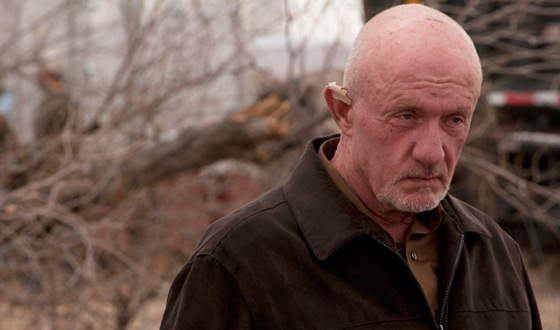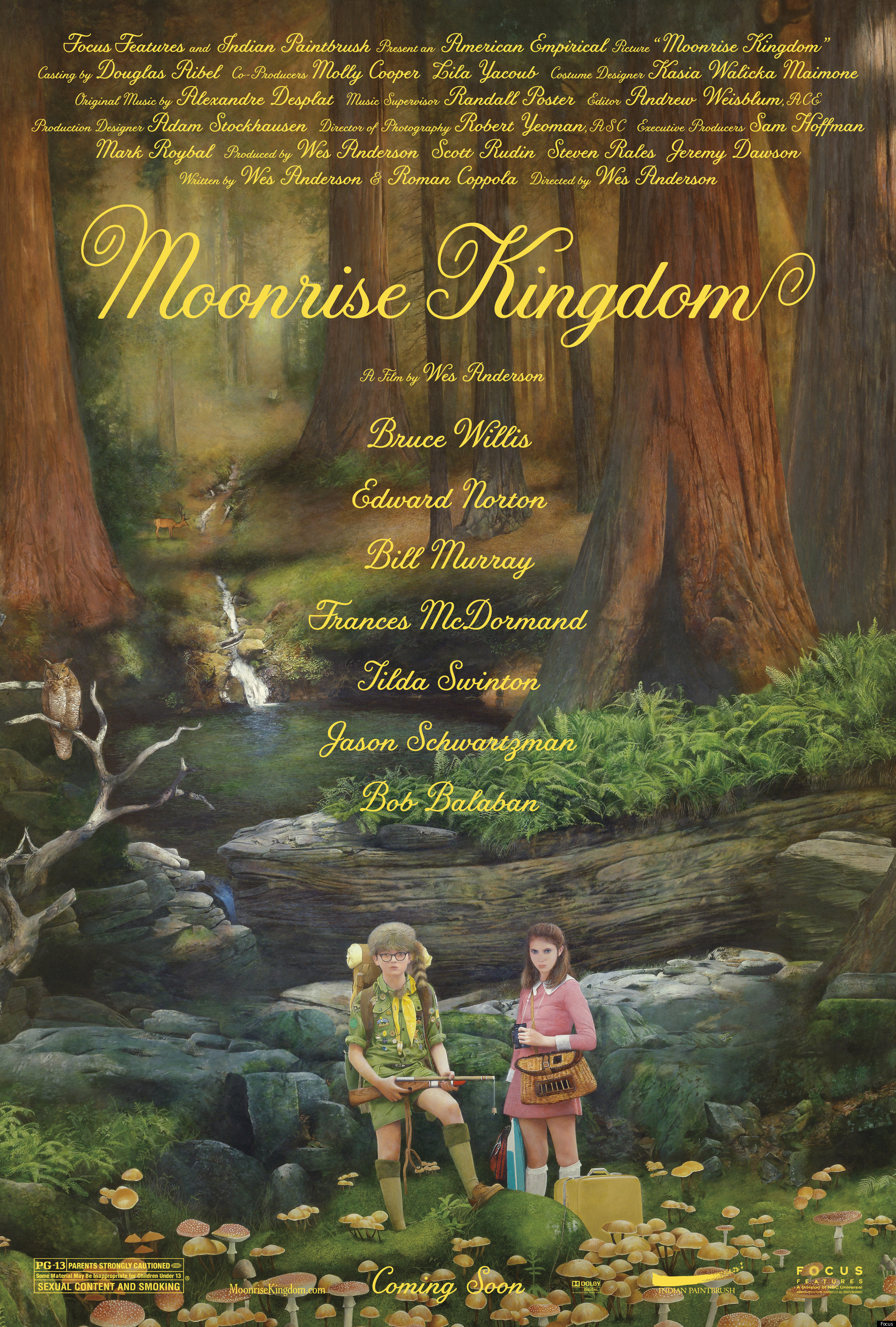 |
| ALL HAIL THE KING. You're goddamn right. |
It's probably a surprise to no one I know that I'm a massive, massive fan of
Breaking Bad, the cornerstone of AMC's original programming lineup, and quite simply, one of the finest television shows of all time. The rise (and most likely fall) of Walter White/Heisenberg, struggling and unsatisfied high school chemistry teacher turned cancer afflicted meth cooker turned sloppy, grandstanding, egotistical meth cooker turned perceived kingpin badass evil meth cooker/distributor/murderer/millionaire, is the finest documentation of the belated flowering of a man's darker desires and ambitions this side of Michael Corleone. On top of that, it's a crackerjack crime drama/black comedy, filled with breathtaking suspense, clever and often hilarious dark humor, heavy and intricate story, and well-drawn characters played by outstanding actors, led above all by the former Dr. Tim Whatley, Bryan Cranston. Throughout its 5 seasons on the air, it has consistently stayed a superior product (much like Walt's signature blue crystal) of television, and looks to continue all the way through the final ending coming next summer. But enough of my almost gushing here. On to my series analysis.

Breaking Bad started out strong, and hit the ground running. The first four seasons (along with the first four episodes of season 5) documented a year in the life of Walter White, starting at his fiftieth birthday, and ending shortly after reaching the age marker of fifty-one. In that one single year, Walter White transformed into a completely different and almost unrecognizable person. Spurred on initially by the cancer eating away at his lungs and putting a potential short fuse on his life, he seeks out the lowlife Jesse Pinkman, a former student of his, in order to learn the ways of the New Mexican meth trade, in which he intends to use all of his considerable skills in the field of chemistry, honed through a former life that he left behind to great regret, in order to financially secure the future of his wife, Skyler, his cerebral palsy-afflicted son, Walter Jr. (or Flynn), and later his baby daughter, while evading and contending with the ever-present threat of rivals (such as Crazy-8), psychotic drug lords (as was Tuco Salamanca and his crippled Tio), and of course his DEA brother-in-law, Hank Schrader, whose threat may be a tad too close for comfort. That was the general framework in which the first two seasons of
Breaking Bad operated. It culminated in Jesse's brief rebuilding of his life (and his addiction to heroin) before he relapsed into squalor upon the death of his love interest Jane (which Walt was directly responsible for), and Skyler discovering (after great suspicion) Walt's true nature, and subsequently leaving him. Also, Walt and Jesse began to work (with the help of crooked lawyer Saul Goodman) under New Mexican drug kingpin Gus Fring. This put the series into phase two, which lasted seasons three and four. At the end is season two, Walt is undeniably already a rather vile human being, from his allowing of Jane's death, to his rather casual indifference for Jesse's problems that directly resulted from his machinations, as well as his criminal activity and clear deception of his family. Yet, you could still root for him here. Seasons three and four turned Walt clear-on into the darkness, as he completely eschewed his original motives for his drug operations in favor of a simple, primal desire, long hidden within by his deep-rooted dissatisfaction with how his life worked out, for power and notoriety. The moniker "Heisenberg", initially created to give Walt a shroud of enigma and mystery to keep druggies on edge, became a legend name used to strike fear in the hearts of his adversaries and keep the DEA at bay. His motives for meth cooking, originally to "provide for the family", became an ego trip, with his ultimate goal of season 3 being stability and security while continuing his operation, and his goal for season 4 being to fulfill his vision of himself, to vanquish the dark overlord suppressing him in Gus, to take away the danger and become the danger, "the one who knocks", who no criminal anywhere would mess with. And as Walt became more and more corrupt, Jesse arguably became more decent and morally grounded, with his killing of Gus' potential replacement for Walt, Gale, at the end of season 3 drastically reforming him, getting him clean for drugs and making him a underling for Mike (the spectacular Jonathan Banks). And while this was supposed to lead to Jesse replacing Walt at the head of Gus' meth operation, Walt's quick (but also sloppy, dangerous and drastic) actions preserved he and Jesse's alliance, and led to the death of Fring. However, it also probably cemented Walt's irredeemability as a character, backstabbing Jesse and proceeding to manipulate him simply to satisfy his lust for power. And this went even further in last week's episode, "Say My Name", leading to Walt directly murdering Mike for virtually no reason but his blind rage. Mike's death is undoubtedly the climax of season 5, as it pushes Walt one step further into the darkness, much as Jane's death in season 2 (which indirectly led to the plane crash in season 2's brilliantly misleading Pink Bear subplot), Walt's hasty killing of Gus' underlings and his role in Gale's murder in season 3, and his poisoning of Brock and manipulation of Hector and Jesse into killing Gus at the end of season 4. So, in the aforementioned "Say My Name", when Walt egotistically forces Gus' former competition Declan to speak his Heisenberg name, the moment of badassery and ego displayed is completely earned. As of tonight's episode, "Gliding Over All", the midseason cliffhanger of the two-part season 5, Vince Gilligan has pulled it off. Now he's got eight episodes left next year to close the deal. On to the review of that specific episode in question.
 |
| RIP Mike Ehrmantraut. Your death scene and half-measure speech shall be enshrined forever in TV history. |
As I said above, "Say My Name" was the climax of this eight-episode mini-season. "Gliding Over All" was the denouement, and the provider of the hook to keep us anticipating until we get our eight-part finale next summer. It was not a roar of an episode, and there were better episodes of
Breaking Bad this year (Any of the previous five, from "Hazard Pay" to "Say My Name" (which could technically be considered a two-parter with the prior "Buyout") in this amazing season would do). Yet, "Gliding Over All" felt like a classic episode of the series, as well as a sort of summation of the show up to this point. Many old plot points were reintroduced, such as the ricin cigarette, Walt and Jesse's old RV, Walt's hatted Heisenberg persona, and even Gale's idolization of Walt, mixed with the more recent developments of Mike's death, the investigation of Lydia and Madrigal, Jesse's money, Walt's new partnership with Todd, and Mike's legacy guys in jail. The highlight of the episode is undoubtedly the sequence in which all of Mike's underlings are systematically killed in a scheme orchestrated by Todd's uncle (apparently a hitman). This scene is heavily evocative of Michael Corleone's systematic removal of his nemeses in the
Godfather films, a very appropriate choice considering the notable comparisons between the young don and our Heisenberg. Another thing to be noted is the greatly sped-up timeline in this episode. Midway through, Marie mentions to Skyler that Flynn and little Holly have been living with them for three months. That means that after it took four and a half seasons of the series to get through one year, three months pass in merely a few hours of the show, since Walt's 51st birthday in the aptly titled "Fifty-One". And considering the flashforward of "Live Free or Die", an episode next year titled "Fifty-Two" would be hardly surprising. At this point, we have to get from Walt, Skyler, Hank, and Marie, apparently healthy and happy with Walt supposedly out of the meth business (but most likely secretly still working with Todd and maybe Jesse, who was prepared for Walt to come and kill him when he brought him the money), to a bearded, haired Walt living under a New Hampshire alias purchasing guns once again from shady dealer Lawson on his 52nd birthday. There's somewhere still between six and nine months ahead before we get to that point, and many of the predictions I made around the time Gus got half his face blown off next year may still come to pass. Initially, Mike's death shocked me; I thought he was kept alive after season 4 in order to play a more direct role in Walt's demise. I now see that he was merely another catalyst for Walt's fall into deeper and darker straits. Rather, the cliffhanger, where Hank finds a poetry book signed by G.B. (Gale) to W.W. (recalling a conversation Walt and Hank had last season), along with appearances of the ricin, mentions of the RV, and Skyler and Walt's conversation over how much money will ever be enough, hints that the second half of season 5 will return more to
Breaking Bad's original concerns. Walt's descent will remain the primary focus, yes, but the plot will be driven as a culmination to everything we've seen so far. Walt, Jesse, Hank, and Skyler will most likely take center stage for the final stretch. You've done 54 outstanding episodes of television, Mr. Gilligan. Only 8 more to go.
"Gliding Over All" gets a 9 out of 10.
The first half of season 5 gets a 10 out of 10.









